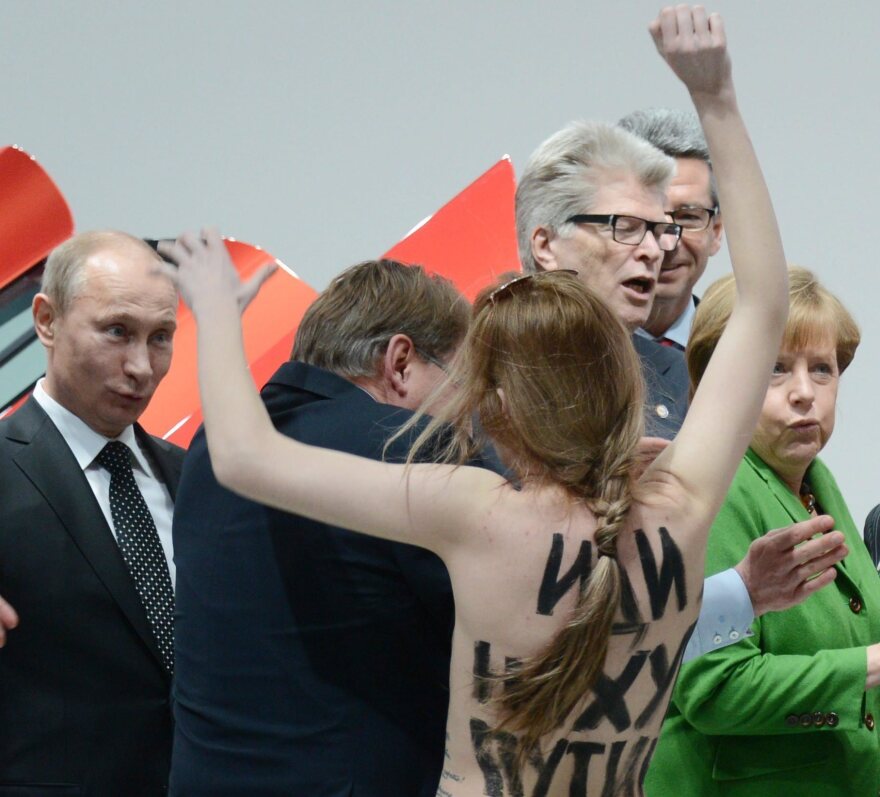At a trade fair in Hanover, Germany, on Monday, three women protesters got quite close to Russian President Vladimir Putin before stripping off their blouses and shouting expletives at the Russian leader.
Putin, who was joined at the fair by German Chancellor Angela Merkel, later sarcastically thanked the women for calling the news media's attention to the gathering.
"As to this action, I liked it," Putin said, according to a German translator. The Russian leader added that the protesters were "pretty girls" and said he couldn't hear what they were screaming.
Well, their words weren't polite. F-bombs were tossed Putin's way. It's believed the protesters belong to a women's rights group, "Femen," which objects to how members of the feminist punk band Pussy Riot were jailed in Russia for "hooliganism."
Putin told reporters he "couldn't see if they were blond or brunettes. ... I don't see anything horrifying in what they did." He also quipped that while it's better to keep one's clothes on during protests, "it's not so cold out — so they can also do it this way."
The president's seeming nonchalance doesn't extend to his aides, however. They want the women, who were grabbed and led away by security staff, to be punished. "This is ordinary hooliganism and unfortunately it happens all over the world, in any city. One needs to punish [them]," said Kremlin spokesman Dmitry Peskov, according to Reuters.
Soraya Sarhaddi Nelson is an NPR international correspondent.
Copyright 2021 NPR. To see more, visit https://www.npr.org.




